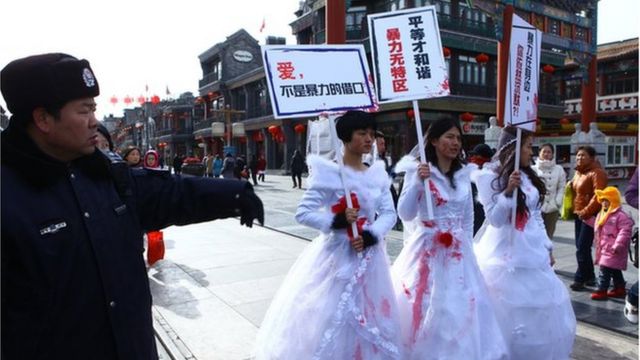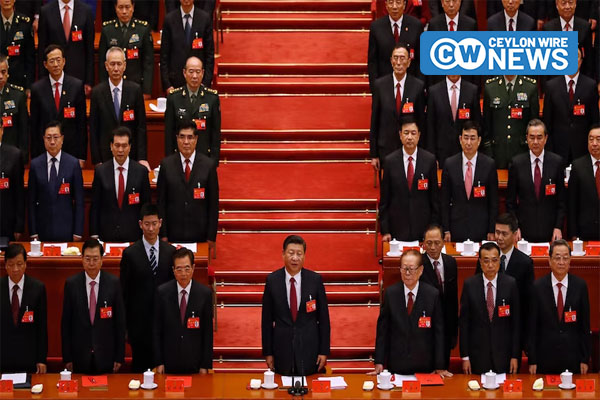The People’s Republic of China (PRC) recently appointed its first Ambassador to Afghanistan post the takeover by the Taliban in 2021. The PRC is clearly trying to give a push to its commercial and strategic interests in Afghanistan, with the Taliban in power. The lack of international recognition of the Taliban stems from its utter disregard for human rights violation and complete denial of the rights of women. Under Taliban rule, women are barred from working and going to school, among other restrictions. The Taliban’s suppression of women’s rights is among the harshest in the world. For a country that shows great affinity for Taliban rule in Afghanistan, the PRC also shares a close approach when it comes to gender issues. The PRC currently ranks 102nd out of 146 countries in the World Economic Forum’s gender gap ranking, down from 69 in 2012, when Xi Jinping came to power at the 18th Party Congress.
This year in May, the UN Committee on the Elimination of Discrimination against Women (CEDAW) inter alia, issued its findings on China, during its latest session. The Committee noted that representation of women in political and public life in the PRC had increased since the combined seventh and eighth periodic reports. The National People’s Congress (NPC) is the only national-level political institution that has adopted some form of gender quota. But the system is ambiguous as from 1988, the NPC has only provided that the proportion of female delegates within each term ‘should not be lower’ than the last. The UN Committee notes that women represented only 26.54 per cent of deputies to the 14th National People’s Congress, and that since October 2022, there had been no women at the highest executive level. Women were excluded from China’s top-decision making Politburo for the first time in a quarter century, at a key leadership reshuffle where President Xi Jinping promoted a slew of male allies, marking a major step back for gender equality.

Not long after the beginning of China’s Cultural Revolution in 1966, Communist Party of China (CPC) Chairman, Mao Tse Tung famously said contributions of women to the nation as “women hold up half the sky.” Ironically, nearly six decades later, very few women are actively involved in China’s Party Congress. Since 1997, there had always been at least one female Politburo member, and briefly two. A quota system has historically required that at least one woman be present in senior leadership at each level below that, contributing a small but steady stream of candidates. There is a larger problem in the PRC. The CPC has nearly 100 million members, but less than a third of the rank and file are women, and the numbers thin out, the higher up its ranks you climb. China’s patriarchal political structure limits women’s upward mobility. From the bottom to the top of the pyramid, women get fewer at each step of the hierarchy (from CPC members, to the Party Congress, Central Committee and the Politburo). This creates biases in the nomination and selection process for leading positions in the party/state. The UN Committee also noted with concern that in Hong Kong SAR, women accounted for only 19 per cent of the members of the Legislative Council, the Executive Council and the Office of the Chief Executive. The Committee recommends that the PRC adopt temporary special measures, such as statutory quotas and a gender parity system, to accelerate the achievement of equal representation of women in the Government, CPC and other organs. The fact is that the CPC has always had an uneasy relationship with feminists, in part because Communists claim to have liberated women themselves. That makes any woman still fighting for her rights potentially subversive, particularly at a time when Xi Jinping is openly distrustful of any civil organization of women. There have been repeated crackdowns on feminists, including arrests of women, protesting against issues that do not obviously challenge the political system, such as sexual harassment. China’s #MeToo movement has thus made little progress.
In the wider world, Chinese women still face barriers to finding work in the graduate labour market and avoid getting pregnant if they do land a job, out of concern their employer will fire them, a common practice despite protection on paper offered by China’s Labour Law. Also, an amendment to the Women’s Rights and Interests Protection Law passed by the PRC’s legislative body in November 2022 introduced a list of moral standards for women to observe. China told women to uphold “family values” in an updated gender law, the latest sign females are facing growing pressure to adopt domestic roles in the world’s second-largest economy. “Women should respect and obey national laws, respect social morals, professional ethics and family values,” according to the law’s opening chapter, which outlines the overarching principles of the revised legislation. As China grapples with record-low birth rates and plummeting marriage numbers, women are coming under pressure to revert to traditional caregiver roles. President Xi Jinping said it was crucial for women to be “good wives and mothers” to ensure the “healthy growth of the next generation” in a 2013 speech. The fact is that China is attempting to use laws to regulate and discipline women.
The overwhelming majority of political leaders in the PRC are members of the CPC, as seen above the Party itself is a ‘men’s club’, with more than 70 per cent of its members being men. The under representation of women in the CPC further undermines their chances of advancement. While government ministries and state-owned enterprises are talent pools for the selection of political elites, women’s lack of access to leadership posts in these sectors further reduces their opportunities to be in positions of power. The question does arise as to when the CPC will live up to Mao Tse Tung’s rhetoric on women’s empowerment? Introducing an effective gender quota system, addressing barriers such as recruitment criteria and educational disparities, diversifying the CPC and providing more opportunities for women in top leadership positions are crucial steps towards increasing female representation in Chinese politics. This, however, seems unlikely, till Xi Jinping remains in power.









